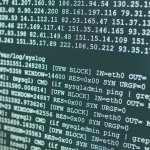Should software paid for by taxpayers be open-source?

- Open-source software gives everybody the right to use, study, share and improve software — in turn supporting other fundamental freedoms like freedom of speech, press and privacy.
- A campaign in the EU calls for a legislation requiring that publicly-financed software developed for the public sector be made publicly available under one of the open-source software licenses.
When you talk about Open Source, the first thing that comes to mind are often companies like Red Hat, Mozilla and the Linux operating system in general. Over the years, these systems and organisations continue to work together with the open source community in developing new solutions.
The belief of the open source community is simple: software should be shared and made available for all to use and develop, republish, improve and distribute for the good of all. And it continues to do that with many big tech companies using open-source as a matter of course.
For some, security remains a concern when using open source, especially for sensitive workloads. However, open source is finally getting the attention it deserves from the mainstream, despite open-source software running the internet’s infrastructure and the majority of cloud services. Today, if any product, service or object runs code, likely it will be at least partly built on open-source. In many instances, proprietary closed code will form the minority of a platform, solution or product.
As such, around the world, there have been debates about software freedom in public administration. In Europe for instance there is a 21-year old movement that pushes for the adoption of open-source software, the Free Software Foundation Europe (FSFE), created as a European “wing” of the FSF. The foundation, since 2021, sees itself as a non-profit with a worldwide mission to advance software freedom.
FSFE also runs a Public Code initiative titled “Why is software created using taxpayers’ money not released as Free Software?” Open-source software, extols the FSFE, gives everybody the rights to use, understand, adapt, and share software.
“We want legislation requiring that publicly financed software developed for the public sector be made publicly available under a Free and Open Source Software license. If it is public money, it should be public code as well,” the campaign blog states.
With its Public Code initiative, the FSFE has the goal, among others, to raise awareness of the benefits that free software can offer such as saving long-term costs, boosting the local economy, transparency, and more. Separately, in an interview with Exygy, Matthew Crist, who worked with the City of Boston on the open source-based boston.gov site, asserted that, “9 out of 10 times [government should choose] open source,” for their software needs.
Even John Foster, the COO of Fearless, which works extensively with the federal government, shared that the US government should not be using proprietary software at all.
“These positions started from a basic place of fairness, or property rights. The taxpayers paid for it, so they should have ownership access to the software that was created with their money,” John told Exygy, adding that he believes that government code is the property of all US people.
Basically, a fair share of experts agree that taxpayer funding should lead to an open-source license, unless there is some overriding concern, like national security. Instead, open-source advocates have rightly noted that free software is a natural fit for any organization that requires solutions based on open standards, interoperability and re-usable components—key elements of the European Commission’s new digital strategy, for example.
Overall, open-source software is often known for being cheaper, more flexible, and longer-lasting compared to other proprietary software. A lot of developers have been, and continue to work on open-source tools as the open-source community allows anyone to work, modify or distribute the code as they see fit.
Today, open-source has become a movement whereby it uses values and decentralized production models to find new ways to solve problems. Companies like RedHat and EnterpriseDB have been advocating open-source solutions for the longest time now.
The State Enterprise Open Source Report by RedHat shows that 90% of IT leaders are using enterprise open source with 79% also seeing an increase of enterprise open source usage for newer technologies over the next two years.










